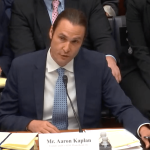The WHO has already given emergency use listing to the vaccines being made by Pfizer-BioNTech, Moderna, Johnson and Johnson, and the AstraZeneca jab being produced at separate sites in India and in South Korea.“This afternoon, WHO gave emergency use listing to Sinopharm Beijing’s COVID-19 vaccine, making it the sixth vaccine to receive WHO validation for safety, efficacy and quality,” WHO chief Tedros Adhanom Ghebreyesus told a news conference.“The Strategic Advisory Group of Experts on Immunisation, or SAGE, has also reviewed the available data, and recommends the vaccine for adults 18 years and older, with a two-dose schedule.” An emergency use listing by the WHO paves the way for countries worldwide to quickly approve and import a vaccine for distribution, especially those states without an international-standard regulator of their own.It also opens the door for the jabs to enter the Covax global vaccine-sharing scheme, which aims to provide equitable access to doses around the world and particularly in poorer countries.The Sinopharm vaccine is already in use in 42 territories around the world, fourth behind AstraZeneca (166), Pfizer-BioNTech (94) and Moderna (46), according to an AFP tally.Besides China, it is being used in Algeria, Cameroon, Egypt, Hungary, Iraq, Iran, Pakistan, Peru, the United Arab Emirates, Serbia and Seychelles, among others.A clutch of other vaccines are on the road towards WHO emergency use listing, including a second Sinopharm product being made in Wuhan — the city where coronavirus was first detected.A decision is expected within days on Sinovac, a second Chinese-made vaccine already being used in 22 countries.Russia’s Sputnik V vaccine is the next furthest ahead in the process. JAPAN EXTENDS VIRUS EMERGENCY AS INDIA POSTS RECORD INFECTIONSA coronavirus state of emergency in Tokyo and other parts of Japan was extended on Friday, less than three months before the Olympics, as India logged yet another record number of infections.While many Western nations have begun a gradual opening-up — Germany on Friday declared that a recent surge of infections had been “broken” — much of the world continues to battle a virus that has now claimed more than 3.2 million lives.Japan’s COVID-19 outbreak remains much smaller than in many countries, with around 10,500 deaths.But its vaccine rollout is moving slowly and more infectious variants are driving fresh waves of contagion, with record case numbers seen in some regions and medics warning that hospitals are under strain.The pandemic has disrupted test events for the upcoming Olympics, with several postponed, cancelled or moved abroad, although the Diving World Cup and a rowing qualifier went ahead this week in Tokyo with athletes from abroad.The emergency measures, less strict than blanket lockdowns in other countries, had been due to end on 11 May but will now continue until the end of the month, Prime Minister Yoshihide Suga said.“The number of new virus cases is at a high level in major cities, while hospitals continue to be overwhelmed in Osaka and Hyogo prefectures,” he said.The recent surge has forced Olympic torch relays off Japan’s roads, with the world’s oldest person, a Japanese woman aged 118, giving up her spot in the event.Meanwhile, India is grappling with the world’s worst surge, where record daily cases have seen the country register up to half of all global infections in the past week.Thursday saw the country post 414,000 new cases in the past 24 hours, another global record, as well as almost 4,000 deaths, according to official data that many experts suspect is a gross underestimate.The capital New Delhi is one of the worst-hit, along with West Bengal in the east, which recently completed an eight-phase election that saw mass rallies by Prime Minister Narendra Modi and other politicians — events now partly blamed for the staggering rise in infections.India’s surge has also been worsened by chronic shortages of hospital beds and oxygen, prompting an outpouring of international aid to the country.Delhi chief minister Arvind Kejriwal has indicated, however, that the crisis in the capital had eased slightly.“Yesterday, for the first time, we received 730 tonnes of oxygen,” Kejriwal told reporters. “But these supplies are needed daily.” The surge has quickly spilt over to India’s neighbours in Bangladesh, Nepal and to Sri Lanka, which on Thursday became the latest country to seal its borders with the South Asian giant.All three countries are now fighting surges of the virus, which has even reached as high as Nepal’s Everest Base Camp, where more than 30 sick climbers have been evacuated from the foot of the world’s highest mountain.In the last three weeks, Nepal’s daily case trajectory has shot up with two out of five people tested now returning positive.“The hospital is overloaded, we are treating patients at each and every corner of the building,” doctor Badri Chapagain said at Bheri Hospital in the Nepalese city of Nepalgunj, which borders India.EU WATCHDOG MONITORING PFIZER, MODERNA FOR CLOTSEurope’s medicines watchdog said Friday it was checking whether COVID-19 vaccines made by Pfizer/BioNTech and Moderna could be linked to rare cases of blood clotting, but there was no indication so far.The European Medicines Agency last month linked two other EU-approved vaccines, one made by AstraZeneca and another by Johnson & Johnson, to rare but occasionally fatal clots, however it stressed the vaccines’ benefits in fighting the coronavirus pandemic outweighed the risks.The EMA’s safety committee “is closely monitoring whether mRNA vaccines might also be linked to cases of rare, unusual blood clots with low blood platelets.” “Following a review of reports of suspected side effects, the (committee) considers at this stage that there is no safety signal for the mRNA vaccines,” the Amsterdam-based EMA said.US drugs giant Pfizer and its German partner BioNTech as well as the US-based pharmaceutical Moderna base their vaccines on mRNA genetic technology that trains the body to reproduce spike proteins, similar to that found on the coronavirus.When exposed to the real virus later, the body recognises the spike proteins and is able to fight them off.So far, only a few cases of blood clots with low blood platelets have been reported among the users of the mRNA vaccines.Compared to the millions of people who have been vaccinated with them, “these numbers are extremely low, and their frequency is lower than the one occurring in people who have not been vaccinated,” the EMA said.“In addition, these cases do not seem to present the specific clinical pattern observed with Vaxzevria and COVID-19 Vaccine Janssen,” the EMA said, using the brand names for AstraZeneca and J & J’s vaccines.“Overall, the current evidence does not suggest a causal relation,” the medicines watchdog said.Meanwhile in Britain, the scientific committee overseeing the country’s vaccination program on Friday recommended that under-40s be offered an alternative to the Oxford-AstraZeneca Covid jab as a way to “increase vaccination confidence”.Many people have shied away from getting the AstraZeneca vaccine after UK and European regulators recorded a very small number of people developing clots with low blood platelet levels.And according to scientific modelling, about 185 million Americans could be fully vaccinated by September, according to CNN. That number accounts for 88% of the adult US population, but experts say it’s a race against time to vaccinate everybody before a winter surge caused by variants strengthening in countries such as India ad Brazil. Booster shots will also be needed in the coming months to keep up immunity.
Powered by WPeMatico





